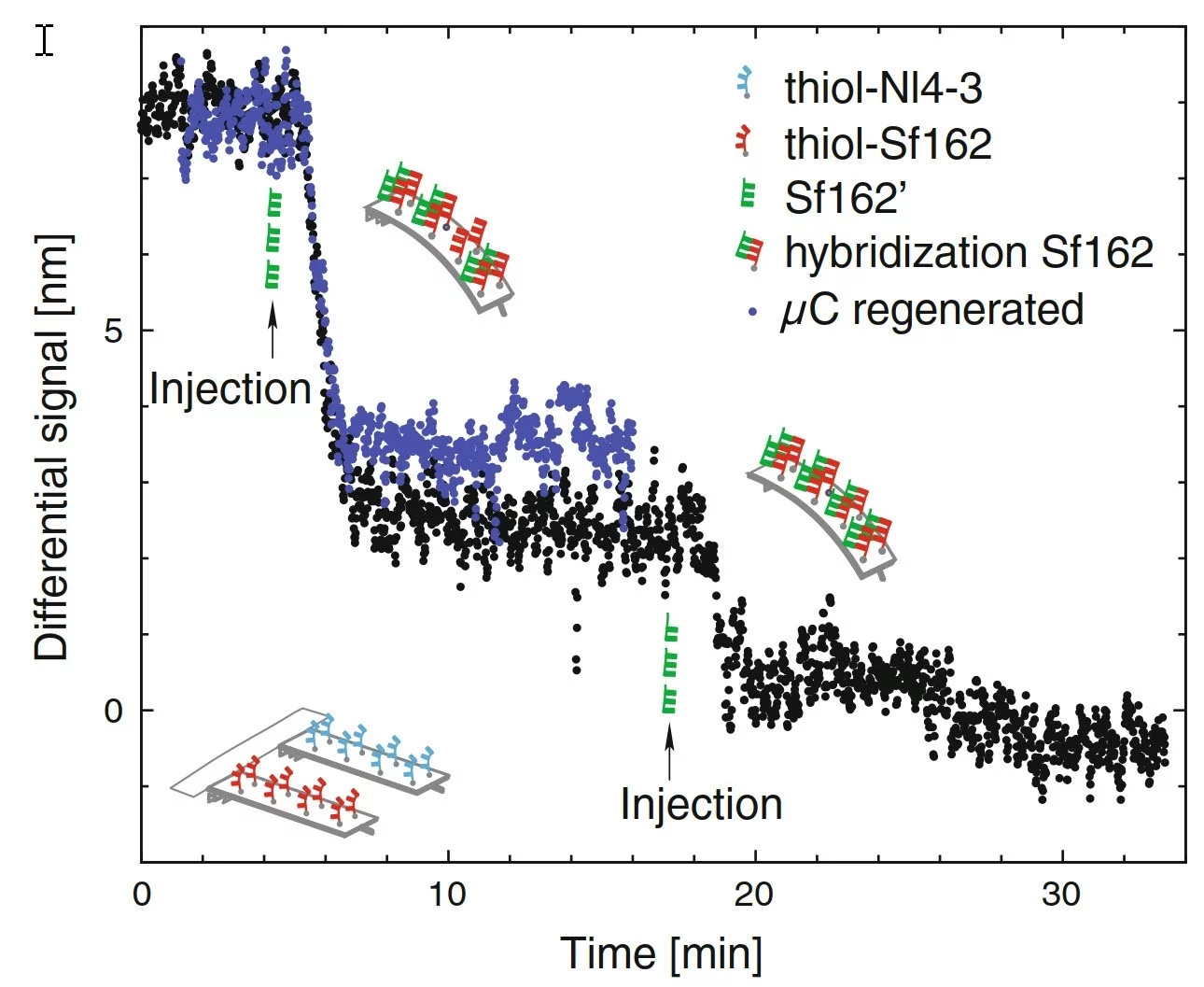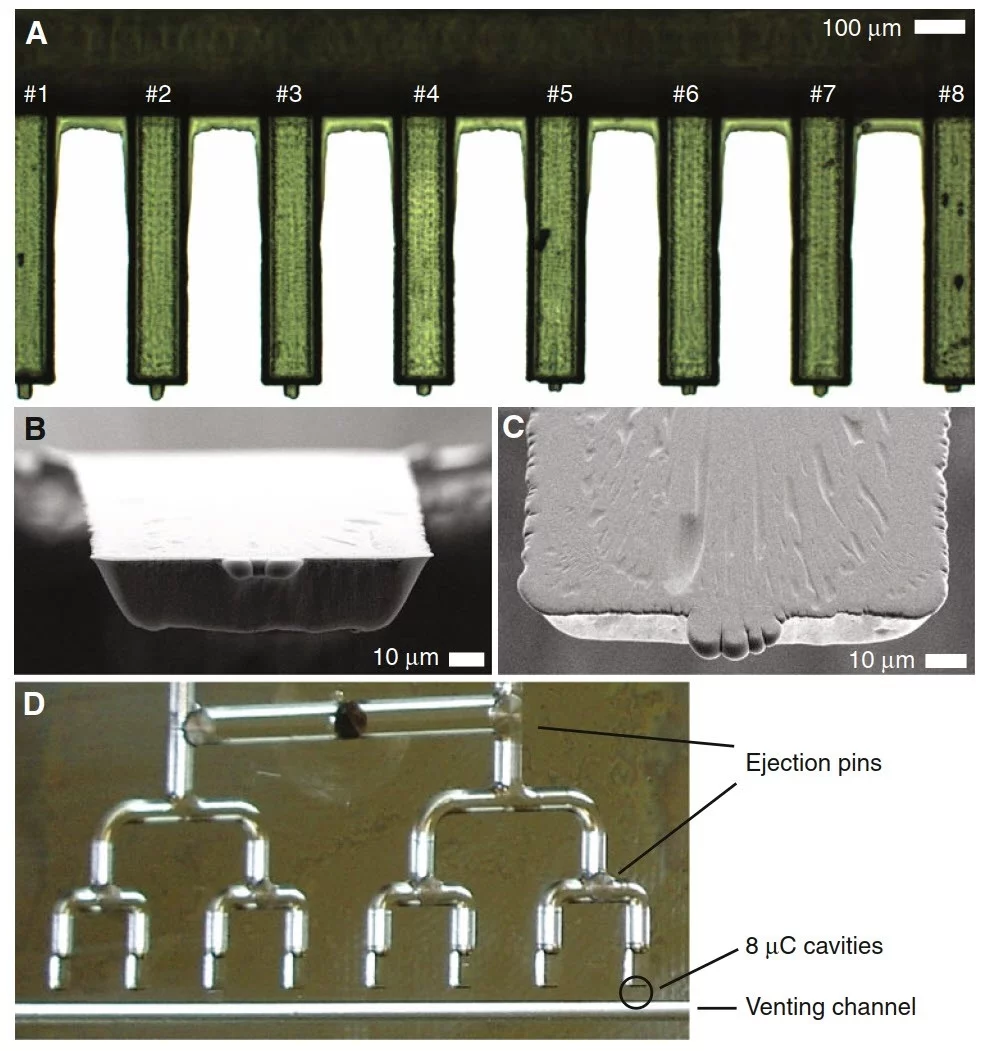Monitoring human biological systems at the molecular level using nanodevices and nanostructures brings nanotechnology closer to nanomedicine. For better diagnosis, nanometer-size species, i.e. biomolecules, have to be recognized with high reliability, high sensitivity and selectivity within short periods of time.
We demonstrated that disposable polypropylene cantilevers can be used as biosensors for medical purposes in the same manner as the established silicon ones to detect single-stranded DNA sequences and metal ions in real-time (Fig. 1) [1,2].
Arrays of polymer micro-cantilevers (µC) were fabricated using polymer micro-injection molding (Fig. 2). The µCs were functionalized with single strands of DNA. When a solution with parts of the complementary single stranded DNA (ssDNA) was injected, DNA hybridization is caused by the complementary interaction between probe DNA and sample DNA resulting in bending of the µC. The result demonstrates the application of cantilever sensors for the detection of ssDNA sequences via their hybridization with sensing ssDNA immobilised on the cantilever. This activity was funded by the Swiss Nanoscience Institute through a collaborative initiative between the Biomaterials Science Center (BMC), Paul Scherrer Institute (PSI), University of Applied Sciences Northwestern Switzerland (FHNW), and Concentris GmbH.
References
[1] P. Urwyler, H. Schift, J. Gobrecht, O. Häfeli, M. Altana, F. Battiston, and B. Müller, Surface patterned polymer micro-cantilever arrays for sensing, Sensors and Actuators A: Physical 172(1), 2-8 (2010); DOI:10.1016/j.sna.2010.12.007
[2] P. Urwyler, J. Köser, H. Schift, J. Gobrecht, and B. Müller, Nano-mechanical transduction of polymer micro-cantilevers to detect bio-molecular interactions, Biointerfaces 7, SpringerOpen 6 (8 pp.) (2012), DOI 10.1007/s13758-011-0006-



